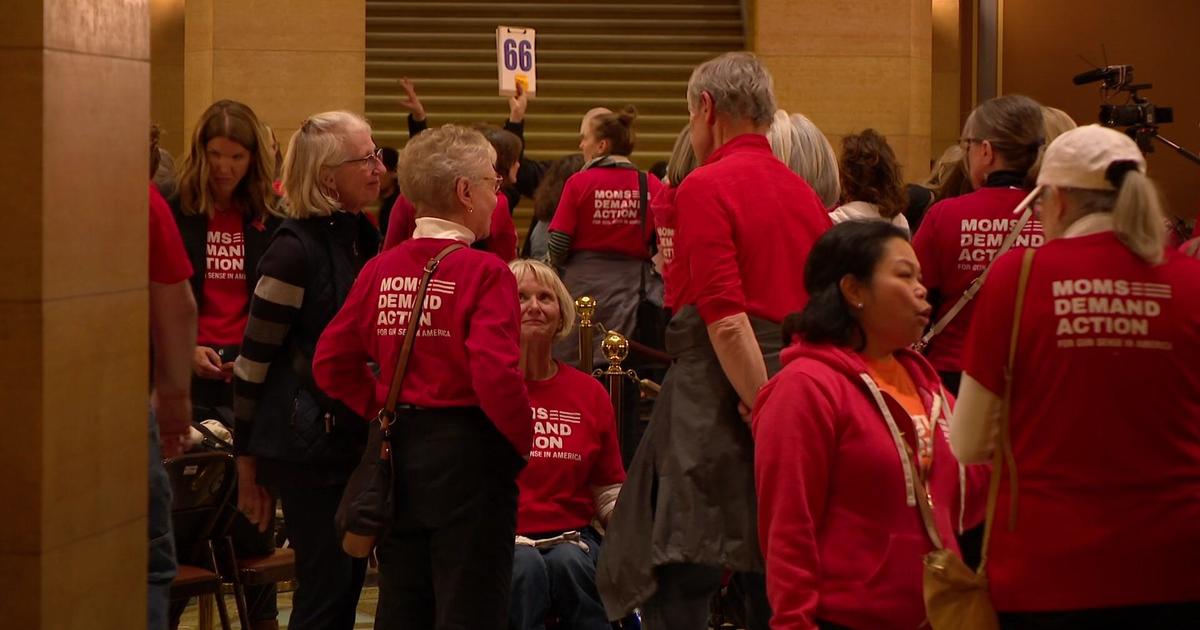Latest Deficit Will Drive Minn. Capitol Session
ST. PAUL, Minn. (AP) — New year, new faces, same old challenge in the Minnesota Legislature: a state budget that's out of whack.
Yet again, the reconfigured Legislature that convenes on Tuesday will likely spend months searching for a solution to financial difficulties.
Along the way, lawmakers are preparing to debate proposals to legalize gay marriage, implement the state rollout of the federal health care law, impose hospital nurse-to-patient ratio requirements and borrow for civic center construction projects.
To hear Gov. Mark Dayton and leaders of the new Democratic majorities tell it, the painstaking process of assembling a two-year state budget will take center stage.
The projected $1.1 billion shortfall pales in comparison to past deficits and the anticipated $37 billion two-year budget. Then again, past fixes relied on clever accounting that soon allowed new deficits to sprout.
Dayton says lawmakers should no longer "try to disguise these problems or put them down the road. Let's deal with it now and get our fiscal house in order and see where we can go from there."
His insistence ensures there will be tough votes ahead. Dayton will ask the Democratic majorities to raise income taxes on top earners, although the full scope of his plan won't be known until he releases a budget proposal in a few weeks.
After two years in which Dayton struggled with Republicans in charge of the House and Senate, Democrats have total control now. November's election gave them a 72-61 majority in the House (pending one special election) and a 39-28 edge in the Senate.
Republicans aren't inclined to help Democrats pass a tax increase. They say there's ample room to cut spending instead.
"Typically, it is very, very easy for legislators to think of all the things they can spend money on and they start proposing things," said Sen. David Hann, the incoming Republican minority leader and a presumed candidate for governor in 2014. "I have yet to see a revenue structure that will yield consistently, year after year, that level of revenue."
The relatively large turnover in legislative membership means it will take time for new lawmakers to get up to speed on all the programs, revenue streams and special accounts in the budget. A full quarter of the House — 34 of 134 members — have never held the office before, while others are returning after being away for years. There are 23 Senate newcomers, but only 12 are legislative novices.
Freshman Rep. Mary Sawatzky, DFL-Willmar, admits that "the learning curve is very steep." As Sawatzky prepared in late December to set up her St. Paul apartment and hand off her teaching duties to a substitute, she was squeezing in meetings with constituents back home and studying issues she'll likely confront.
She said her constituents desperately want an end to the partisan stubbornness that, among other things, led to government gridlock and shutdowns. During a recent three-day freshman retreat, Sawatzky made a point of getting to know members of both political parties, hoping for productive relationships later.
"The last 10 years haven't been pretty," she said. "We have to get this thing figured out."
The uncertain economy complicates things. The "fiscal cliff" standoff in Washington made it difficult for state economic forecasters to get a clear read on Minnesota's financial conditions. They warned when projecting the deficit that it could change a lot depending on what federal leaders decided on. It will be late February or early March before lawmakers get a fresh analysis of state financial trends, meaning no solid budget decisions can be made before then.
Some things will move quicker.
Dayton's administration is establishing a state health insurance exchange, which is one of the requirements of the federal health care law passed during President Barack Obama's first term. It will be a portal for consumers to shop around for policies, with a goal of having it operational by the next open enrollment period in October.
Overdue state employee contracts also await legislative ratification. The pacts, which include 2 percent raises for thousands of unionized state workers, can't be amended by the Legislature but need approval to officially take hold. The contracts are so tardy that only six months are left before they expire. A new round of negotiations is due to begin this spring, with Dayton already indicating he will seek to offer insurance coverage for unmarried domestic partners of state employees.
Bigger gay rights debates will hang over the session. Advocates of legalizing gay marriage say they'll press their case. They hope to capitalize on November's defeat by voters of a ballot measure that would have enshrined Minnesota's ban on same-sex marriage in the state constitution.
Likewise, some of those who led the charge against another failed ballot measure that would have required voters to show photo ID at the polls have set their sights on other voting matters. There are calls to enact a broader system for early voting, perhaps by opening polling places weeks before Election Day or by removing the need for a valid excuse to vote absentee.
Dayton and legislative leaders have cautioned they won't let policy issues take precedence over the budget. They realize they will invite political criticism if they stray too far from the main task, although Dayton said he expects the criticism to come no matter what.
"Any tiptoe we take we'll be accused of overreaching," Dayton said at a recent forum. "This is not going to be as some fear and some hope a sky-is-the-limit kind of approach."
Legislative leaders may hope to finish early, but they're not promising it. The last time lawmakers finished their yearly session notably early was in 1998, when they left St. Paul a few weeks into April.
The constitutional deadline for adjournment this year is May 20.
(© Copyright 2012 The Associated Press. All Rights Reserved. This material may not be published, broadcast, rewritten or redistributed.)



